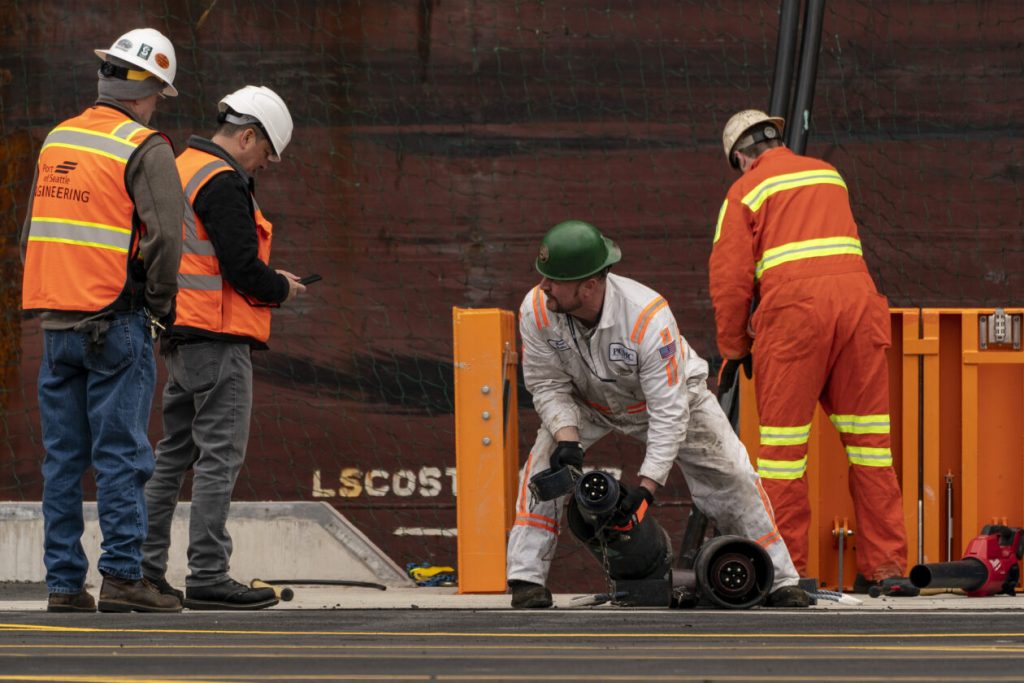Seattle-area seaports have joined forces to seek $500 million in federal funding to bring zero-carbon technologies to maritime operations. The ports of Seattle and Tacoma, along with The Northwest Seaport Alliance, are looking to replace diesel and other fossil fuels with electrification and clean sources such as hydrogen, ammonia, methanol, and biodiesel. This initiative aims to install infrastructure for ships to plug into the grid and transition to cleaner options for trucks and cargo-moving equipment. David Fujimoto from the Port of Seattle believes this funding represents a unique opportunity to accelerate the transition to clean energy.
The funding, part of a $3 billion fund from the Biden Administration’s Inflation Reduction Act, allocated by the U.S. Environmental Protection Agency, is expected to be awarded in the fall. If successful, the grant would provide economic benefits, reduce carbon emissions, and improve air quality for communities near the ports. The Northwest Ports Clean Air Strategy has been working to cut pollution emissions from ports since 2008. However, decarbonizing the maritime sector is challenging as technology is still under development, and transitioning to cleaner options for vehicles, vessels, and machinery comes with significant costs.
For example, the cost of a diesel-powered drayage truck is significantly less than that of a new zero-emissions truck, creating uncertainties for truckers. Alex Adams from the Port of Seattle sees this funding as an opportunity to demonstrate the feasibility of clean energy technology. With growing private sector pressure to decarbonize shipping, major companies like Amazon and Walmart are working towards net-zero carbon emissions within their operations. Amazon is involved in various initiatives to promote zero-emission vessels, while Walmart launched Project Gigaton to address supply chain emissions.
The port’s grant application includes plans to provide shore power at shipping container terminals, upgrade cargo-handling machinery to electric and hydrogen power, incentivize the purchase of zero-emissions vehicles for drayage truck drivers, research alternative fuels for maritime vessels, and invest in workforce development and community outreach programs. If the federal grant is not secured, alternative funding sources from the state budget and the Climate Commitment Act of Washington will be pursued. Despite the challenges, port leaders are optimistic about the progress they have made in achieving climate and pollution targets.
Jason Jordan, the director of environmental and planning services for The Northwest Seaport Alliance, expressed optimism about the initiative’s potential to move the needle in transitioning towards cleaner maritime operations. The funding aims to provide tangible demonstrations of clean energy technology and build confidence in its feasibility for industry stakeholders. With the support of federal funding, the Seattle-area seaports are poised to make significant strides in reducing carbon emissions, improving air quality, and advancing sustainable practices in maritime operations.


